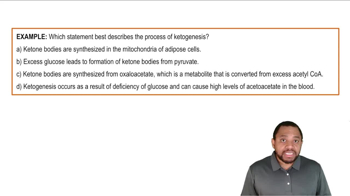Identify each of the following elements as a metal, a nonmetal, or a metalloid:
a. located in Group 2A (2)
 Verified step by step guidance
Verified step by step guidance Verified video answer for a similar problem:
Verified video answer for a similar problem:


 2:40m
2:40mMaster Periodic Table: Classifications with a bite sized video explanation from Jules
Start learning